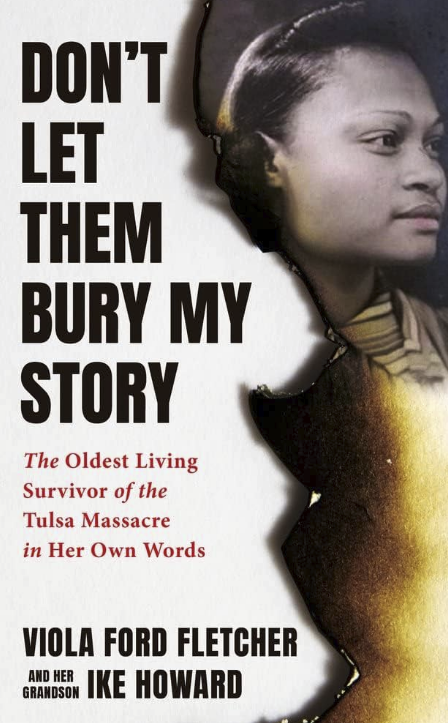A 109-year-old woman has just made history after becoming the oldest person in history to write a memoir.
Viola Fletcher is one of the last remaining survivors of the Tulsa Massacre, which took place after a white mob burned down the Greenwood district of Tulsa, Oklahoma, better known as America’s “Black Wall Street.”
Fletcher was only seven when the massacre took place. Since then, she says she still remembers the stench of smoke and the eruption of violence on that fateful night of May 30, 1921.
“You know, I can still smell the smoke … the burning,” Fletcher told The 19th. “I remember the bodies. All the Black bodies in the street. The sound of the guns … they didn’t stop — I can still hear them. I haven’t forgotten that. I can’t forget that … you can’t. It doesn’t go away.”
On Independence Day last month, she officially released her memoir, Don’t Let Them Bury My Story, a riveting account of what life was like for her following the massacre, and how it inevitably changed her life.

“Every day, I have lived through the massacre. While our country may forget this history, I cannot.” Fletcher wrote in the book’s description.
Writing the book has now made Fletcher the oldest woman in the world to write a memoir. Her grandson, Ike Howard, co-wrote the book with her and worked with publicist Margo Ochoa to get the book to publication.
“I knew this had to get out there. That first conversation with Ike and the family, I knew. I knew that this was too important and powerful not to,” Ochoa said. “So when the doubts and flat out ‘no’s came in from publishers, I was floored. I got into literary activism because of what I saw during my early years in media. So many Black stories are out there that could do so much, that deserve to be told. I wasn’t going to stop.”
Mayor G.T. Bynum, a sixth-generation Tulsan and the third person in his family to serve as mayor of the city, said Fletcher’s feat is just one of the many ways members of the community can work to find missing graves that were lost during the massacre.
“The city remains committed to finding the graves of 1921 Tulsa Race Massacre victims, fostering economic investment in the Greenwood District, educating future generations about the worst event in our community’s history, and building a city where every person has an equal opportunity for a great life,” Bynum said.
He continued: “My hope is that we as a community can work together more on these initiatives, whether that is to search for the graves or promoting education through institutions like Greenwood Rising or in schools.”
